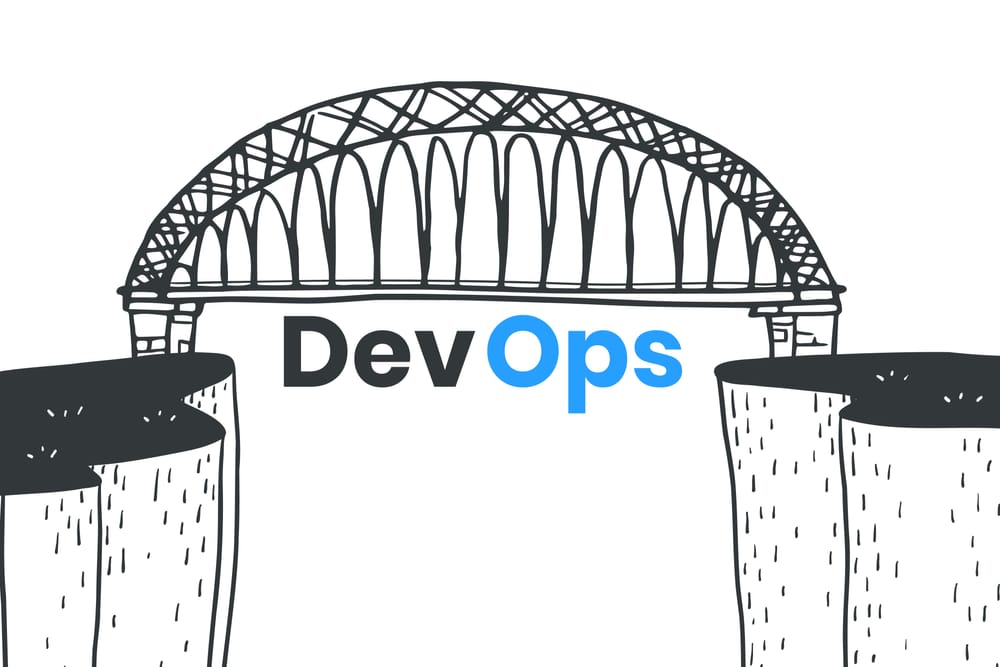In the rapidly evolving world of software development and best practices, the term "DevOps" has emerged as a model of efficiency, innovation, and collaboration. Bridging the gap between development (Dev) and operations (Ops), DevOps is not just a methodology but a culture that is reshaping the IT landscape.
This comprehensive guide will navigate through the essence of DevOps, its fundamental principles, indispensable tools, the role of a DevOps engineer, requisite skills, and a glimpse into its promising future. But to fully appreciate what DevOps brings to the table, it's essential to first understand the Waterfall and Agile models. By exploring these foundational frameworks, we set the stage for a deeper understanding of DevOps' transformative impact on the tech industry.
What Is the Waterfall Model?
The Waterfall model, one of the earliest software development methodologies, is a sequential design process often used in software development. It is characterized by a linear and rigid flow, where each phase must be completed before the next one begins. The main phases include requirements, design, implementation, testing, deployment, and maintenance. This model is known for its simplicity and ease of understanding; however, it lacks flexibility. Changes are difficult to implement once the process is underway, making it less adaptable to evolving requirements or unexpected challenges.
What Is the Agile Model?
In contrast, the Agile model represents a dynamic approach to software development. Unlike the rigid linear progression of the Waterfall model, Agile methodology is iterative and incremental. It focuses on customer satisfaction through early and continuous delivery of valuable software components. With principles such as self-organizing teams, frequent adaptation to changing circumstances, and a focus on collaboration and customer feedback, Agile offers a flexible and efficient framework that can respond to the unpredictable nature of software development. The Agile model lays the groundwork for DevOps by emphasizing communication, collaboration, and integration among teams.
What Is DevOps?
By understanding the Waterfall and Agile models, it becomes evident how DevOps has emerged as a natural evolution in software development methodologies. DevOps builds on the Agile model's flexibility and responsiveness by further integrating development and operations, thus enhancing the capability for continuous delivery and improvement. This evolution reflects the industry's shift towards more collaborative, efficient, and adaptive approaches to software development and deployment.
DevOps is different from the above models as it’s a set of practices and cultural philosophies that aim to shorten the systems development life cycle, foster continuous delivery, and ensure high software quality. Its practices naturally create a symbiotic relationship between development and IT operations that emphasizes communication, collaboration, and integration. DevOps breaks down silos and accelerates the process of software development and deployment.
The POD model, which emphasizes a more holistic approach to software development, is an element of DevOps which is focused on creating small, autonomous, cross-functional teams known as PODs.
What Are the DevOps principles?
The foundation of DevOps is built upon five key principles:
Automation: From code generation to testing, deployment, and monitoring, automation is the heart of DevOps. It reduces manual work, minimizes errors, and speeds up processes.
Continuous Integration and Continuous Delivery (CI/CD): These practices involve merging all developers' working copies to a shared mainline several times a day and ensuring the software can be reliably released at any time.
Collaboration and Communication: DevOps fosters a culture where development and operations teams work closely together, share responsibilities, and communicate frequently to optimize workflows.
Feedback Loops: Rapid feedback mechanisms are crucial for continuous improvement. DevOps encourages immediate response to problems and adaptability to change.
Monitoring and Measurement: Constant monitoring of the application's performance and infrastructure helps in proactive problem-solving and optimizing user satisfaction.
DevOps Tools
A wide array of tools facilitate the implementation of DevOps practices:
- Version Control Systems (e.g., Git): Manage code changes and enable collaboration.
- Continuous Integration Tools (e.g., Jenkins, Travis CI): Automate the building, testing, and merging of code.
- Configuration Management (e.g., Ansible, Puppet): Automate the provisioning and management of software.
- Containers and Orchestration (e.g., Docker, Kubernetes): Package applications and manage their deployment across different environments.
- Monitoring and Logging (e.g., Prometheus, ELK Stack): Monitor applications and infrastructure for troubleshooting and optimization.
What Is a DevOps Engineer and What Are Their Responsibilities?
A DevOps engineer is a multifaceted professional who embodies the principles of DevOps in their practices. Their responsibilities include:
- Automating the software development process using tools and practices.
- Ensuring the scalability and security of systems.
- Facilitating continuous integration and continuous deployment (CI/CD) processes.
- Monitoring system performance and resolving issues.
- Collaborating across departments to create a seamless workflow.
How Are DevOps Engineers Different From Engineering Managers (EMs)?
Engineering Managers and DevOps Engineers play pivotal yet distinct roles within tech organizations.
Engineering Managers focus on strategic oversight, team management, and project success, ensuring alignment with business objectives and fostering team culture. Engineering Managers require strong leadership and project management skills to guide and develop their teams
DevOps Engineers dive into the technical nitty-gritty, automating processes, enhancing collaboration between development and operations, and solving system-related issues. DevOps Engineers need a robust technical foundation in coding, scripting, and system administration, alongside expertise in DevOps tools and practices, to optimize the software development lifecycle.
What Skills Do You Need to Be a Great DevOps Engineer?
To excel as a DevOps engineer, one needs a blend of technical, operational, and soft skills:
- Proficiency in coding and scripting languages.
- Deep understanding of CI/CD tools and practices.
- Expertise in infrastructure as code and configuration management.
- Strong problem-solving and troubleshooting abilities.
- Excellent communication and teamwork skills.
Where Is DevOps Heading?
The future of DevOps is bright and dynamic, with several trends shaping its evolution:
- AI and Machine Learning Integration: AI and ML are being increasingly integrated into DevOps tools for predictive analysis, improving automation, and enhancing decision-making.
- Increased Focus on Security: DevSecOps, integrating security practices within DevOps, is gaining traction to ensure secure software development lifecycle.
- Serverless Computing: The rise of serverless architectures is changing the way applications are developed, deployed, and managed, promoting even greater efficiency and scalability.
- Infrastructure as Code (IaC): As IaC matures, it will play a crucial role in automating and managing complex infrastructures.
DevOps is more than just a methodology; it's a transformative culture that promotes efficiency, innovation, and collaboration in the software development lifecycle. With its principles, tools, and the pivotal role of DevOps engineers, it is set to continue evolving, paving the way for a more integrated and automated future in IT.





